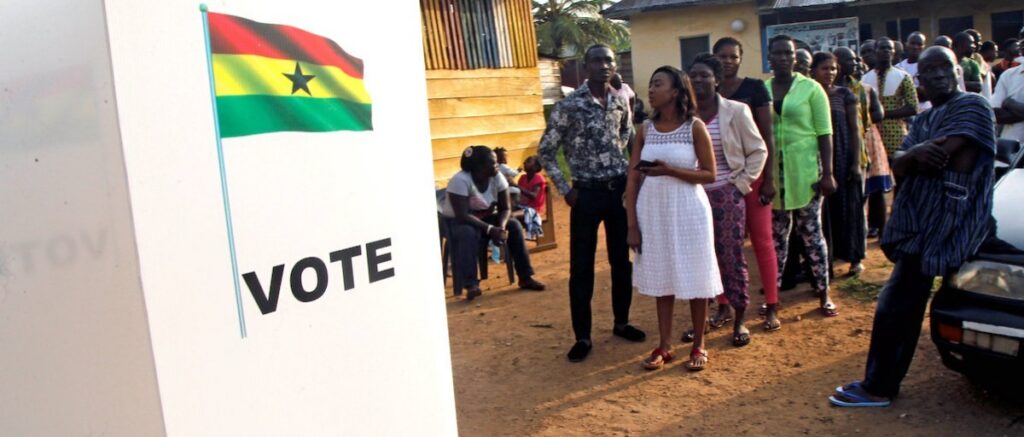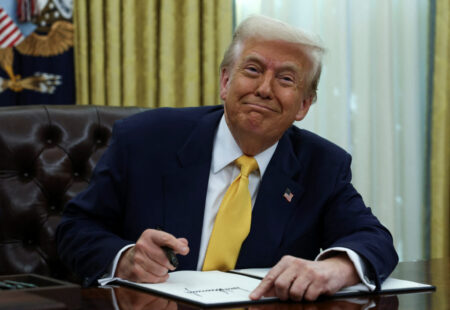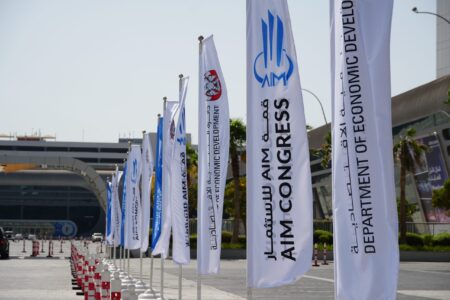- Ghana’s economy is in its worst condition before the country elects a successor to President Nana Akufo-Addo on December 7.
- The December elections come amid an increasingly polarized atmosphere and a challenging economic landscape precipitated by the nation’s first-ever sovereign debt default.
- According to the most recent Afrobarometer survey, 40 per cent of Ghanaians identified unemployment as the dominant issue facing the nation that requires governmental intervention.
Ghanaians will vote for a new president and 276 lawmakers on December 7, 2024, in the ninth election since the West African country transitioned to a democratic system in January 1993. Voters will elect a successor to President Nana Akufo-Addo, whose two-term mandate ends in January.
Although the Electoral Commission has approved twelve candidates for the presidential race, technically, the election is a contest between the two opposing parties, the National Democratic Congress (NDC) and the New Patriotic Party (NPP).
The December elections come amid an increasingly polarized atmosphere and a challenging economic landscape precipitated by the nation’s first-ever sovereign debt default. Responsibility for the economy’s condition, the prevalence of unemployment, and the growing trend of ecocide are among the principal issues prominently influencing the campaigns.
The Sorry State of Ghana’s Economy
Ghana is arguably in its worst economic crisis since the return of democratic rule. As such, the state of the economy tops the agenda for Ghana’s 2024 elections. With over 18 million citizens preparing to vote on December 7, jobs, education, and the state of the infrastructure will prove key in determining who takes over the country.
During the current administration’s tenure, Ghana’s economy was battered by the impacts of the COVID-19 pandemic, the Russia-Ukraine conflict, and rising global interest rates exacerbated by years of excessive borrowing.
Ghana’s public debt rose from 63 per cent of GDP in 2029 to 92 percent in 2022. The country’s currency, the cedi, also depreciated significantly and, at one point, ranked among Africa’s worst-performing currencies. Inflation also peaked above 54 percent, hitting consumers hard and forcing businesses to cut spending.
Ghana also defaulted on its $30 billion sovereign debt in 2022, throwing the economy into a tailspin. The government, which had earlier vowed not to return to the IMF, had to make an about-turn and turn to the IMF for a $3 billion bailout. The West African country’s critical situation meant there was no alternative to an IMF deal without restructuring local holdings, which the experts said was unprecedented in Africa.
The debt restructuring, part of the economic bailout plan, was launched in December and required local bondholders to exchange their bonds for new ones with lower yields and longer maturities. The move triggered protests from pensioners. While inflation eased to a little above 20 per cent, living costs continue to bite Ghanaians. Businesses have also been hit hard with some of their capital in the restructuring, straining liquidity and forcing them to cut jobs.
Read Also: The bitter pill of cocoa’s value chain in Ghana and Ivory Coast
Budget Crisis and Possible Government Shutdown

“We risk a government shutdown or, at best, lean government spending from January,” Seth Terkper, former finance minister from 2013-17, said in an interview. According to Terkper, the government might have to cut back on interest payments and funding for the political transition unless a budget is passed in December.
Ghana’s parliament remains on indefinite recess since October 23 due to a deadlock over which of the two major parties holds the majority of seats. The Supreme Court determined on November 12 that Parliament Speaker Alban Bagbin’s proclamation was illegal. Bagbin has rebuffed calls to recall parliament, claiming it will disrupt the election campaign.
Ghanaians Unoptimistic About the Economic Situation
According to the most recent Afrobarometer survey, 40 per cent of Ghanaians identified unemployment as the dominant issue facing the nation that requires governmental intervention. Additionally, 25 per cent and 20 per cent of respondents cited economic management and the rising cost of living, respectively, as their foremost concerns. In summary, 80 per cent of Ghanaians feel that the nation is ‘heading in the wrong direction,’ while only 15 per cent express a positive outlook on this matter.
During the peak of the economic crisis 2022, approximately 90 per cent of Ghanaians perceived the nation’s economic conditions as either somewhat unfavorable or exceedingly dire. Although that figure has experienced a slight decline, approximately 80 per cent of Ghanaians continue to perceive the economic situation as either poor or very poor.
Furthermore, around 70 per cent of Ghanaians believe the country’s economic condition has deteriorated over the past year. The number of Ghanaians who express that they are ‘fairly or very contented’ with the functioning of democracy in the nation has declined by 29 percentage points since 2017.










